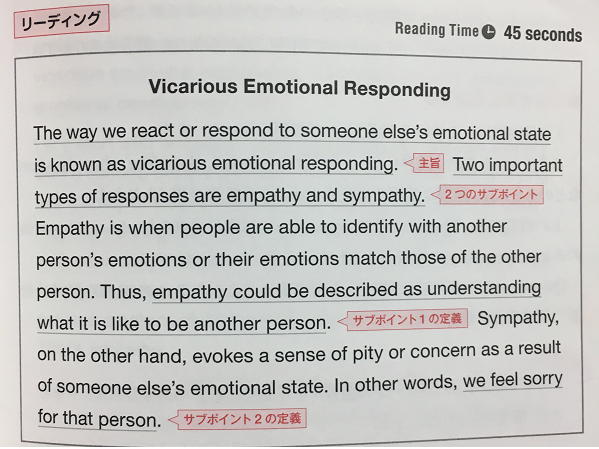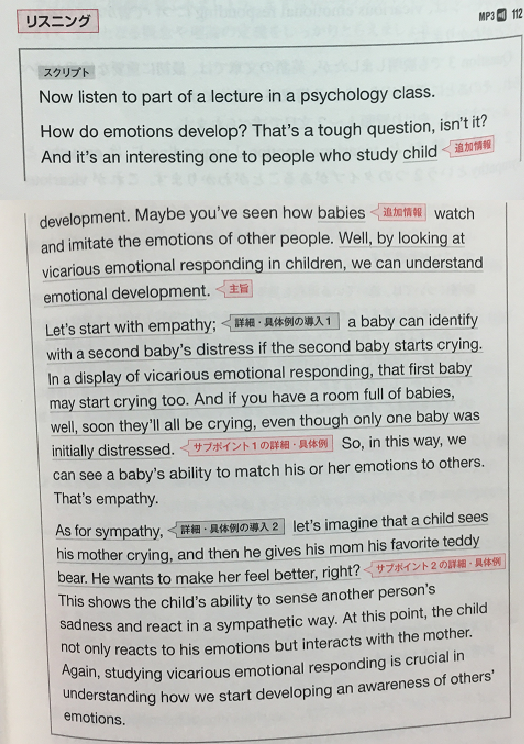PASSAGE READING
45秒で以下の文章を黙読してください。その後、音読しましょう。
READ

LECTURE READING
講師が講義の一部を音読します。その後、音読しましょう。
READ

QUESTION
こどもたちにおいては、共感や同情のような代理的情動反応はどのように認められるのか、講義の具体例を用いて説明してください。
ANSWER
60秒で回答します。回答を始めてください。
ANSWER
___________________________________________________
___________________________________________________
___________________________________________________
___________________________________________________
___________________________________________________
___________________________________________________
CHECK YOUR ANSWERS
Now we’ll check sample answer. Please repeat after me.
解答例を見ます。講師に続いて読みましょう。
SAMPLE ANSWER
A professor is talking about vicariouos emotionalresponding, the topic mentioned in the reading passage.
According to the readong passage, vicarious emotional responding is the way we react to another person’s emotional state.
Two important type of responses are empathy and symphathy.
The professor gives real-life examples of children respoding to emotions.
First, the reading passage introduces empathy.
The professor explains that a baby who cries when she hears another baby crying is an example of a baby responding with empathy.
The second idea from the reading passage is that sympathy is feeling sorry for another person.
The professor illustrates sympathy with the example of a child who gives a teddy bear ti soothe his crying mother.
Both the empathetic babies and the sympathetic child are example of vicariouos emotionalresponding.